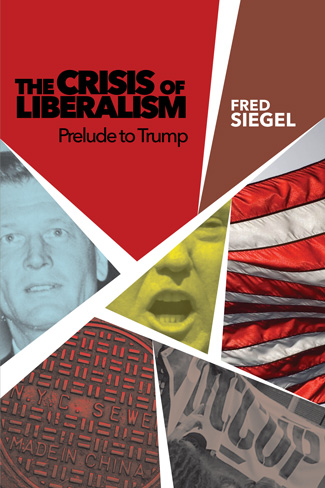In today’s episode of the Telos Press Podcast, David Pan talks with Adam K. Webb about his article “Supranational Governance and the Problem of the ‘Dignified Constitution,’” from Telos 195 (Summer 2021). An excerpt of the article appears here. Their discussion covers a range of topics, including the difference between the dignified constitution and the efficient constitution, the lack of a dignified constitution in supranational institutions like the EU and the UN, the domination of these institutions by the new class elite, the possibility of a global demos, the opposition of dignified constitutions to technocratic views of government, the insularity of some traditionalist arguments, and the current prospects for a broad global coalition. If your university has an online subscription to Telos, you can read the full article at the Telos Online website. For non-subscribers, learn how your university can begin a subscription to Telos at our library recommendation page. Print copies of Telos 195 are available for purchase in our online store.
|
Now available for pre-order from Telos Press Publishing: The Crisis of Liberalism: Prelude to Trump, by Fred Siegel. Pre-order the paperback edition today in our online store and save 30% off the list price. Offer expires 9/30/20. Also available now in Kindle ebook format. Release dates: October 1, 2020 (paperback), September 15, 2020 (ebook).
by Fred Siegel In The Crisis of Liberalism: Prelude to Trump, Fred Siegel leverages New York City to uncover the key political conflicts and social contradictions in American liberalism over the last century. This wide-ranging collection of essays critically recounts how passionate intellectual debates over how to realize “the good life” in the modern city emerged from the writings of early progressive “thought leaders,” who envisioned a new educated elite capable of enlightened democratic governance. The flaws in this approach, as Siegel shows, expressed themselves most floridly in John Lindsay’s New York, whose flashy limousine liberals were a preview of today’s politically correct gentry liberalism. Its cultural programs over the past half-century repeatedly failed the downtrodden underclass and alienated middle-class New Yorkers trapped in economic stagnation. By neglecting voters’ real concerns over illegal immigration and China’s emerging threats, globalist technocratic liberals ultimately set the stage for Donald Trump’s angry nationalist demand to put “America First.” The appointment of the Minister of Industry, the so-called “technocrat” Mehdi Jomaa, to form a caretaker government in Tunisia on the eve of the revolution’s third anniversary, threw into stark relief the country’s complex struggle for democracy following the January 14 revolution. The announcement came in the wake of the Islamist party Ennahdha’s sudden renunciation of the Prime Minister’s office in September, ostensibly a sign of cooperation in the face of mounting criticism surrounding the government’s failure to investigate the assassinations of two political opposition figures. A number of Western media outlets, including the New York Times, quickly absorbed the narrative advanced by Ennahdha’s leader and spiritual guide Rachid al-Ghannouchi referring to the appointment of Jomaa as a “yielding of power.” This narrative of concession, however, elides the fact that neither of the Parliament’s largest secular opposition parties supported the vote to appoint Jomaa, or, for that matter, that the vote failed to achieve a majority. Faced with mounting criticism, Ennahdha’s spokesman denied reports in Le Monde from the previous day that the appointment had been directed by lobbying efforts from the U.S. Department of State and the E.U.[1] In other words, Ennahdha leaders defended the appointment as a victory as much as they sold it as a concession. The former lends itself to the long-standing critique on the part of secular pundits within Tunisia that Ennahdha has been playing a long game and is determined to alter the secular nature of the State. The latter suggests that the Islamist party is representative of a democratic majority and envisions a path of moderate conservative governance along the lines of the AKP in Turkey. |
||||
|
Telos Press Publishing · PO Box 811 · Candor, NY 13743 · Phone: 212-228-6479 Privacy Policy · Data Protection Copyright © 2024 Telos Press Publishing · All Rights Reserved |
||||








